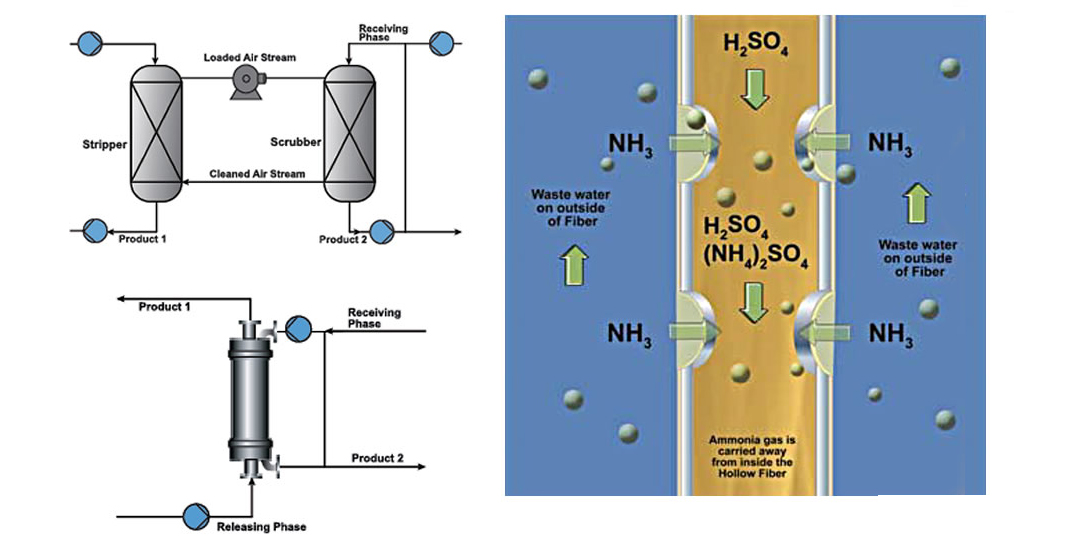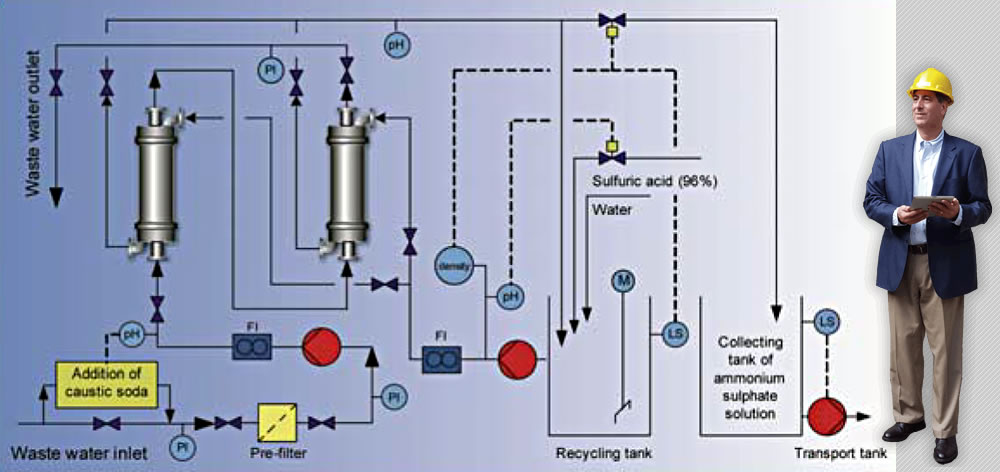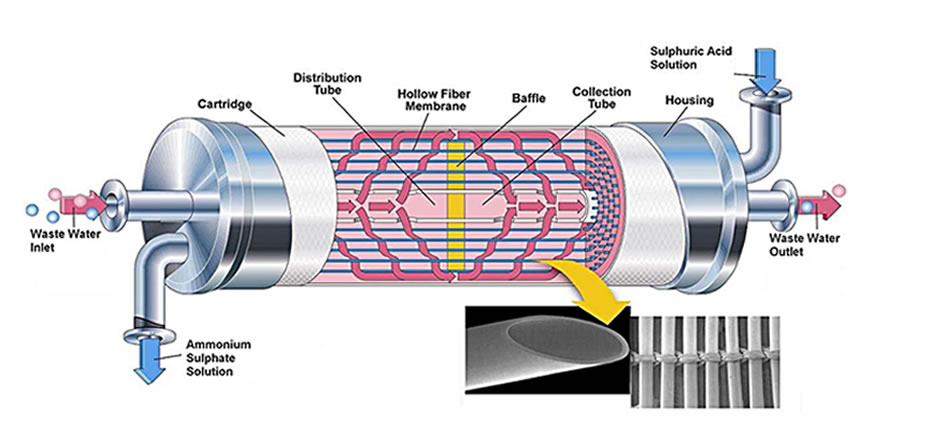eNPure...Your Single Source Solution for:
Membrane Contactors Designed for Ammonia Removal
Solutions Utilizing TransMembrane ChemSorption (TMCS)

Capture and Reuse Ammonia with Membrane Contactors. Liqui-Cel® Membrane Contactors achieve low dissolved gas concentrations
and operate with less chemicals than other degassing methods.
APPLICATIONS INCLUDE:
- Fertilizer Waste Water
- Power
- Refining
- Chemical Processing
- Semi-conductor Wafe Washing
Unbalanced waste streams with high levels of ammonia can overwhelm the denitrification capabilities of most biological treatment plants, leading to ineffective treatment of both ammonia and other contaminants and resulting in non-compliance with stringent discharge limits.
TransMembrane ChemSorption technology offers
an effective alternative for selectively removing
ammonia from waste streams to meet discharge
limits or to allow downstream processes
to function within their design limits.
An integrated cleaning and recovery system that
incorporates Liqui-Cel® Membrane Contactors for
TransMembrane ChemSorption (TMCS) can reduce compliance
costs associated with ammonia abatement from wastewater
with minimal maintenance, and with lower capital and operating
expenses than typical stripper-scrubber-oxidizer technologies.
ADVANTAGES OF TMCS VS. TRADITIONAL
STRIPPER-SCRUBBER
SYSTEMS
SMALL SIZE - 10X THE SURFACE AREA OF CONVENTIONAL
DEGASIFIERS
COMPACT MODULAR DESIGN
LOW ENERGY DEMAND
SINGLE STEP, IN-LINE PROCESSING
NO AIR POLLUTION
HIGH CONCENTRATION AND QUALITY OF RECOVERABLE AMMONIA
EASILY EXPANDABLE
MODULAR DESIGN OFFERS FLEXIBILITY FOR
MEETING
FUTURE CAPACITY OR TIGHTER SPECIFICATION
REQUIREMENTS
LOWER INSTALLATION AND OPERATING COSTS
Enpure's Ammonia removal experts can save you operating and capital expenses utilizing advanced and proprietary process design.

TransMembrane ChemSorption (TMCS) Process Description
Feedwater, contaminated with ammonia and with a pH greater than 10, is introduced to the shellside (outside) of the microporous, hydrophobic, hollow fiber in the membrane contactor. A 36%- 45% sulfuric acid solution flows counter-current to the feedwater on the lumenside (or inside) of the hollow fiber at approximately one-third the flow of the feedwater. The gaseous NH3 comes out of solution, transfers through the membrane wall, and then reacts with the acid to form a diluted ammonium sulfate solution.
The sulfuric acid / ammonium sulfate solution is recirculated until the acid is spent, at which time the ammonia is available for recovery or for disposal.

